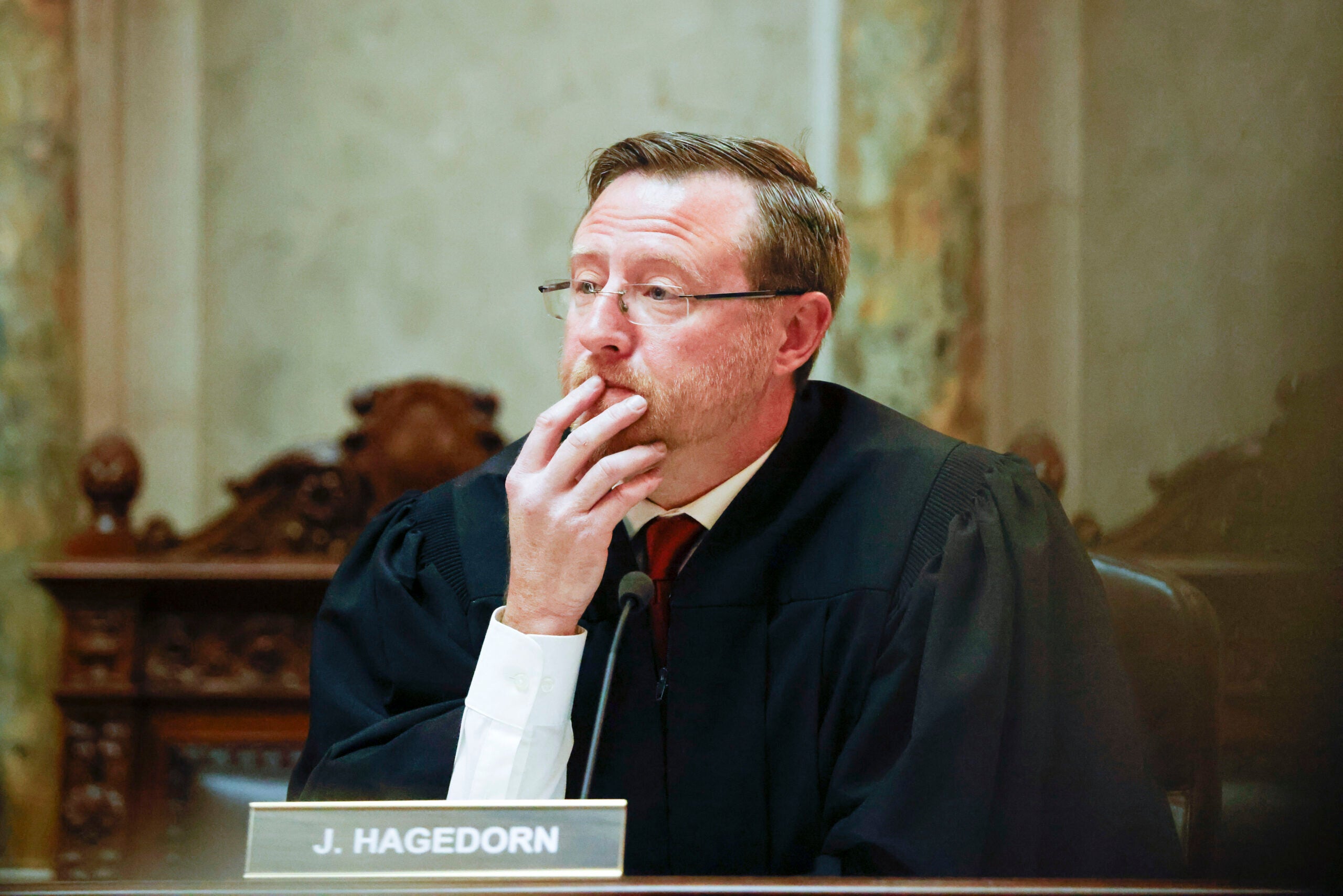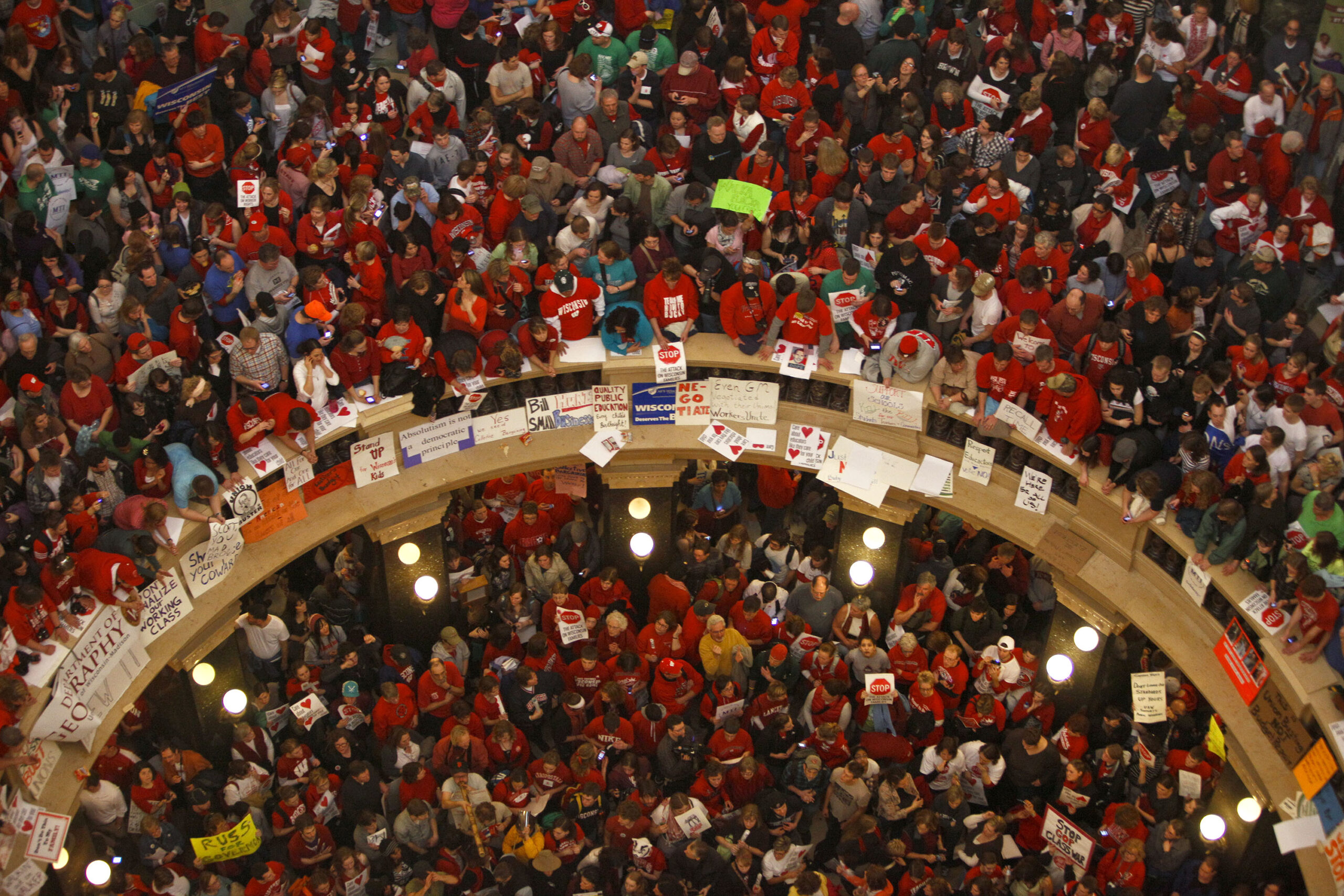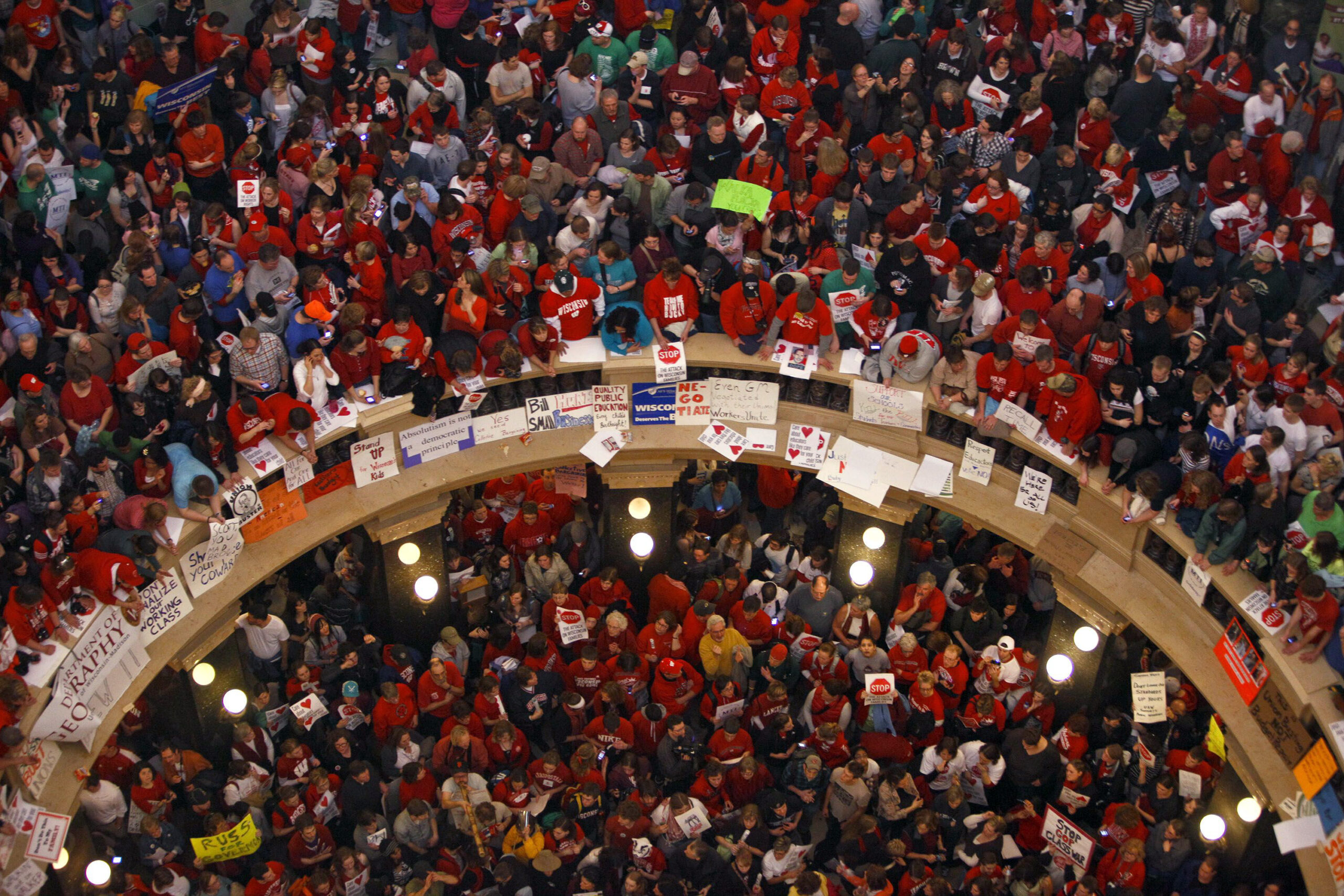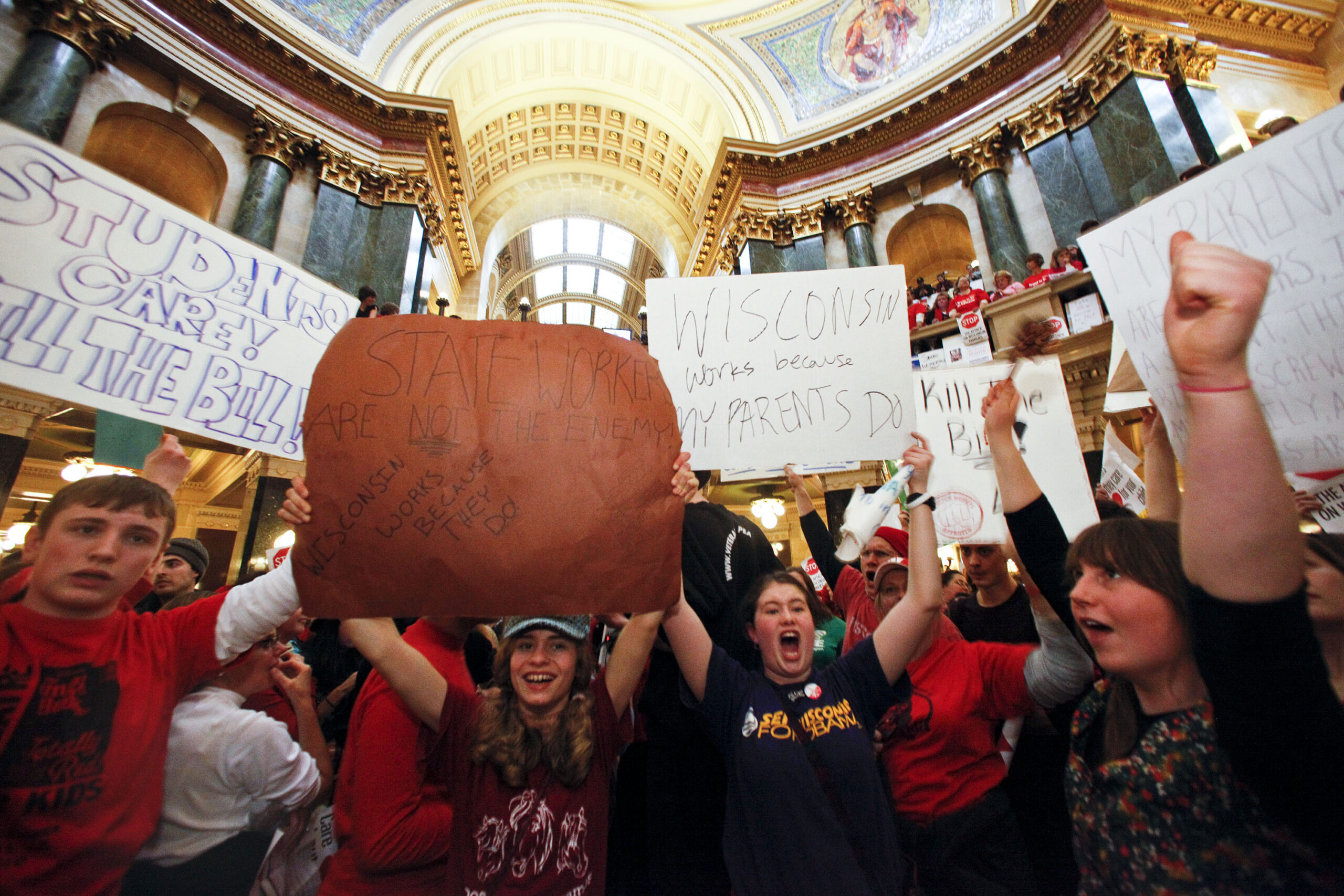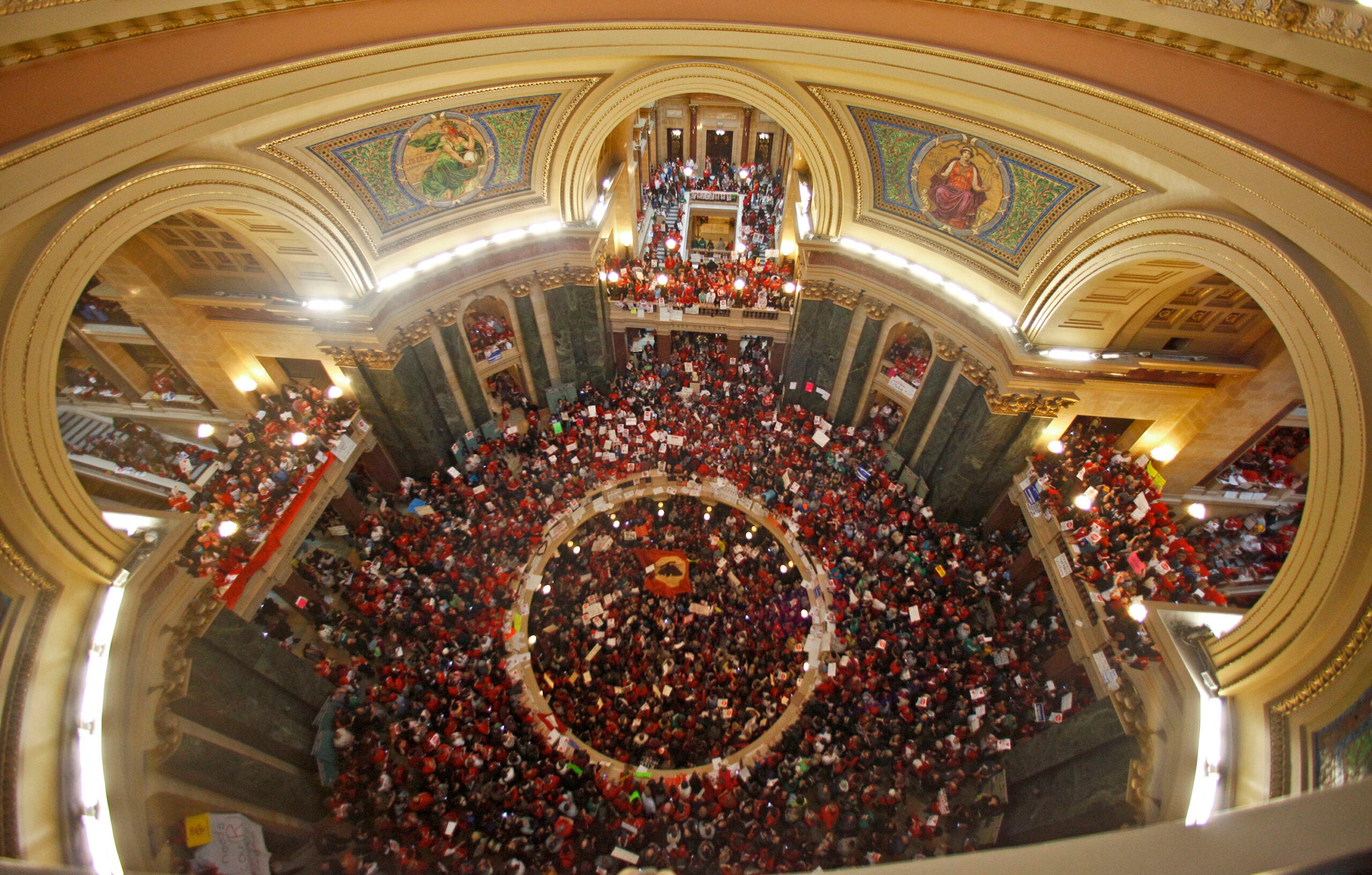A law that drew massive protests and made Wisconsin the center of a national fight over union rights is still being challenged in court 13 years after it took effect.
Last week, a Dane County judge ruled that parts of Wisconsin’s Act 10 violate the equal protection guarantees of the state Constitution. The law sharply limits collective bargaining rights for most public employees but provides exemptions for certain public safety employees like police officers and firefighters.
Jon Shelton is a professor and chair of democracy and justice studies at the University of Wisconsin-Green Bay and vice president of higher education for the American Federation of Teachers-Wisconsin. He joined WPR’s “Wisconsin Today” for a look at what the recent Act 10 ruling could mean for public labor unions in the state.
Stay informed on the latest news
Sign up for WPR’s email newsletter.
The following has been edited for brevity and clarity.
Kate Archer Kent: Circuit Court Judge Jacob Frost ruled that Act 10 violates the state Constitution’s equal protection provision. What aspects of Act 10 does he see as a violation?
Jon Shelton: There’s a five part test he used … to decide whether or not the division between public safety workers and general workers was legitimate. And Judge Frost said that it’s not rational because certain groups like Capitol Police, who you would think would be included in public safety workers, are not included.
But workers with the motor vehicle department were included in public safety. So what the judge said is that there’s no rational basis for dividing the categories. This is really big, because he effectively said that all of the collective bargaining aspects in Act 10 are unconstitutional.
KAK: What is the state Constitution’s Equal Protection clause?
JS: The Equal Protection clause effectively says that you can’t treat people differently in terms of the rights that folks have under the Constitution, all things being equal.
So if you are going to treat people differently, you have to have some kind of reason for doing so. You can’t just indiscriminately say, “We’re going to give these rights to this group of people and these rights to this other group of people.” And that’s what the judge argued happened with Act 10.
KAK: Under this ruling, a group like yours could be poised to retake some rights and privileges that you had before Act 10, is that correct?
JS: Yes. It’s important to note that public employee unions never went away in the state. Collective bargaining is one tool that unions use. What the union basically does is it takes worker concerns and worker efforts to improve their workplace and puts them all in one place and allows them to, as the name would suggest, collectively negotiate for better wages and working conditions. And in the public sector, it’s really important because this also includes, in the education world, advocating for things that are good for our students.
Act 10 basically said you can still advocate for those things, you can still push for those things. We have broad-ranging first amendment rights. … You just can’t negotiate those things into a contract. So we’ve continued to do that in the state. But you can’t negotiate over a lot of different things. Teachers can’t negotiate over class sizes. Workers for state agencies can’t negotiate over health care. They can’t negotiate over retirement benefits.
What this ruling could do is allow all of those workers to negotiate over the same things that police and fire can negotiate, which is the full suite of working conditions.
KAK: In 2014, a federal appeals court ruled that Act 10 was constitutional, and in that same year the Wisconsin Supreme Court upheld the law. What arguments do you think would be made in an appeal that might keep Act 10 in place as-is?
JS: When you challenge things in the courts, you have to find new grounds to challenge them. Judge Frost did say these are new grounds to challenge the case. So those decisions, while there may be some arguments that are recycled, this would be a completely new set of arguments.
The judge has asked both sides to come back with their recommendation of, “Here’s how we should navigate this.” Union attorneys are likely going to argue for the most sweeping remedy that would have the broadest possible reach of bargaining rights for all general public employees. The legislature is probably going to make a more restrictive argument, which is that only a smaller classification of workers should get full collective bargaining rights — effectively trying to rationalize that division between public safety and general employees. And then we’ll see what Judge Frost’s ruling is moving forward.
KAK: Earlier this year, liberal Justice Janet Protaciewicz said she would consider recusing herself if this case was brought to the state Supreme Court because of her participation in the protests against Act 10. What effect would her recusal have on this challenge?
JS: The thing to remember is that in this case, whatever the lower court ruling is, that will be the law of the land. So if it gets to the state Supreme Court, and Justice Janet Protaciewicz were to recuse herself, a 3-3 tie would effectively maintain whatever the lower court ruling is. So, if there’s a really sweeping ruling and she recuses herself, it might not actually be enough to overturn a lower court decision.

